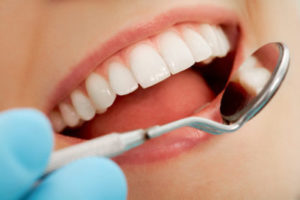Why Do I need To Floss?
Dentist Morrisville

The Benefits of Flossing:
- Prevent Gingivitis and Gum Disease: Flossing removes plaque and food particles from between your teeth. Gingivitis is the first stage of gum disease and the most treatable. Flossing helps prevent the signs and symptoms of gingivitis by removing plaque.
- Prevent Tartar: Tartar refers to the calcification of dental plaque when exposed to saliva. Dentists recommend flossing daily to prevent formation of tartar which can also lead to gum disease.
- Prevent Cavities: The same dental plaque that causes gingivitis can lead to the growth of harmful bacteria that will destroy the enamel between your teeth, forming a cavity. Flossing daily decreases the likelihood of cavity development.
- Prevents Halitosis: Halitosis is another name for bad breath. The main cause of bad breath is food particles that are left between teeth. The only way to get rid of every bit of food particle is to floss daily.
- Prevent Heart Disease: It has been established that there is an association between oral health and heart disease. This is because the mouth acts as an inlet of harmful bacteria to the cardiac tissue. Brushing twice a day and flossing is the best way of preventing such bacteria from affecting your heart.
- Control Diabetes: Diabetics are more likely to develop gingivitis than people who don’t have diabetes. And poor oral hygiene can make diabetes more difficult to control. Flossing is important in preventing gum infections, which could affect your insulin needs.
- Make teeth appear whiter: Your teeth will look brighter and healthier if you maintain healthy gums, by flossing daily with whitening floss or any other type of floss that you like.
Types of Dental Floss:
There are multiple types of floss and all are effective when used properly. Your dentist Morrisville recommends you find one you like and keep it handy at all times.
- Unwaxed floss is thin nylon floss made of strands twisted together. It fits into tight spaces if your teeth are close together, but it is prone to shredding or breaking.
- Waxed floss is standard nylon floss with a light wax coating. It is less likely to break, but the wax coating may make it harder to use in tight spots.
- Dental tape is broader and flatter than standard floss and comes in waxed or unwaxed varieties. People with more space between their teeth often find dental tape more comfortable to use than standard floss.
- Polytetrafluorethylene floss (PTFE) is the same material used in high-tech Gore-Tex fabric. The material slides between the teeth easily and is less likely to shred compared to standard floss.
- Super flosses are made from yarn-like material that has stiffer sections on each end that can be used to clean around braces and dental bridges.
If you have questions on how to floss, come see your dentist Morrisville and we will be happy to show you the most effective way!
